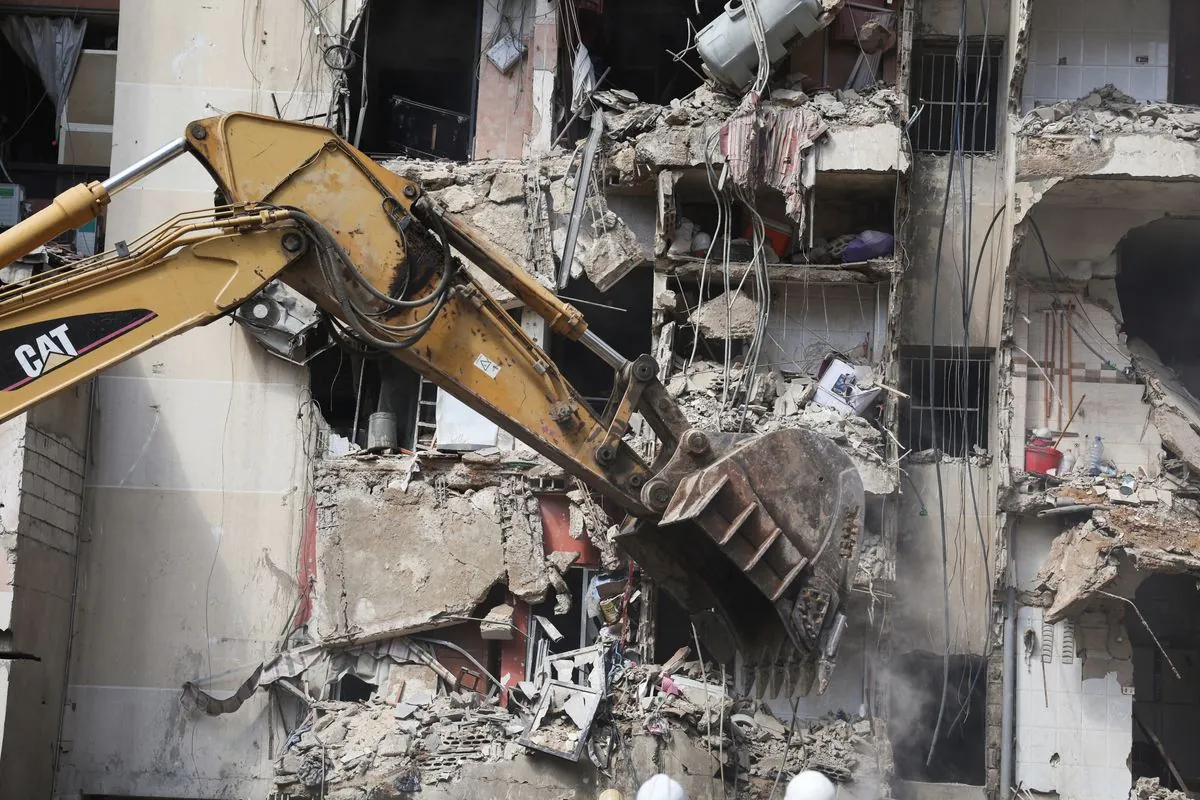The conflict between Israel and Hezbollah has intensified, with Israel launching a series of airstrikes on Beirut's southern suburbs and other areas of Lebanon. This escalation, occurring nearly a year after the initial outbreak of hostilities following the Hamas attack on Israel on October 7, 2023, has raised concerns about a potential wider regional conflict.
On September 28, 2024, Israeli forces conducted over 20 airstrikes on Beirut before dawn, with more following after sunrise. The attacks targeted areas controlled by Hezbollah, an organization founded in 1985 during the Lebanese Civil War. Smoke was visible rising over the city's southern suburbs, known as Dahiyeh, which have been under Hezbollah's control for decades.
The Israeli military claims to have eliminated Muhammad Ali Ismail, the commander of Hezbollah's missile unit, along with his deputy. This assertion comes amidst speculation about the fate of Sayyed Hassan Nasrallah, who has led Hezbollah for 32 years since 1992. The status of Nasrallah remains uncertain, with conflicting reports about his whereabouts and condition.
These strikes have resulted in significant displacement, with thousands fleeing the affected areas. Many have sought refuge in Beirut's downtown squares, parks, and seaside areas. The Lebanese health authorities have confirmed six fatalities and 91 injuries from the initial attack, with the toll expected to rise. Over the past week, more than 700 people have reportedly been killed in strikes, according to local authorities.
The conflict has had a profound impact on Lebanon's civilian population. Approximately 100,000 people have been displaced in the past week alone, adding to the over 200,000 previously uprooted. This humanitarian crisis is compounded by Lebanon's existing challenges, including its complex political system based on confessionalism and the severe economic crisis that began in 2019.
Israel's actions have drawn international concern. At the United Nations General Assembly, several delegations walked out as Israeli Prime Minister Benjamin Netanyahu approached the lectern. Netanyahu defended Israel's right to continue the campaign, stating, "Israel has every right to remove this threat and return our citizens to their homes safely."
The conflict has also affected Israel, with Hezbollah firing hundreds of rockets and missiles against targets in the country, including Tel Aviv. Israel's sophisticated missile defense system, Iron Dome, has minimized damage thus far. The Israeli government has stated that returning approximately 70,000 Israeli evacuees to their homes is a war aim.
"As long as Hezbollah chooses the path of war, Israel has no choice, and Israel has every right to remove this threat and return our citizens to their homes safely."
International efforts to de-escalate the situation are ongoing. France and the United States have proposed a 21-day ceasefire. U.S. Secretary of State Antony Blinken emphasized the need for diplomacy, stating, "We believe the way forward is through diplomacy, not conflict... We will continue to work intentionally with all parties to urge them to choose that course."
The current escalation occurs against the backdrop of a complex history between Israel and Lebanon. Israel occupied southern Lebanon from 1982 to 2000, and the 2006 Lebanon War lasted 34 days, resulting in significant casualties on both sides. The United Nations Interim Force in Lebanon (UNIFIL) has been present since 1978, monitoring the volatile situation along the Blue Line, a border demarcation established by the UN in 2000.
As the conflict unfolds, its impact extends beyond the immediate region. Lebanon, already hosting large numbers of Palestinian and Syrian refugees, faces additional strain on its resources. The country's economy, heavily reliant on remittances from its diaspora population, may face further challenges as the situation deteriorates.
The international community watches closely as the situation develops, with hopes that diplomatic efforts will prevail in preventing a wider regional conflagration.
